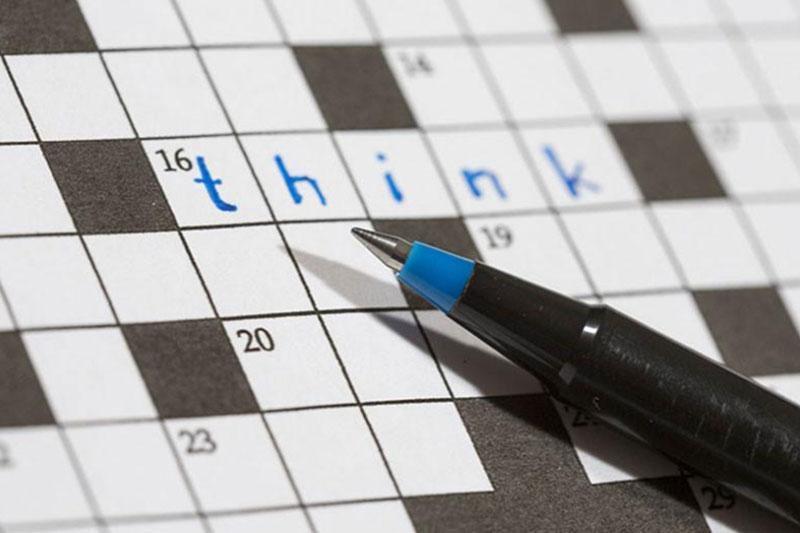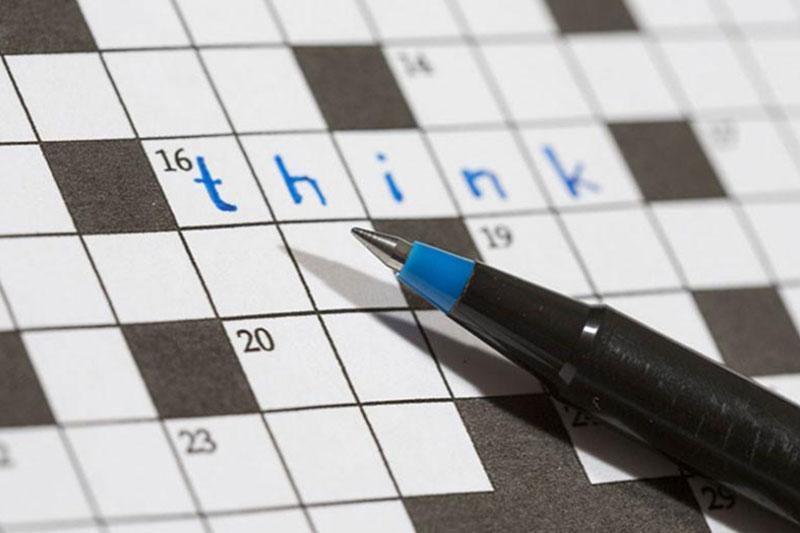Many of us struggle to remember the arithmetic formulas we learned in high school, or recall the vocabulary words we so easily strung into sentences throughout college. We forget the name of our waitress and can’t remember where we left our car keys. We question whether or not we let the dog outside before work and if we unplugged the hair straightener. And while some of these details seem irrelevant to us now, what happens if we start to forget the big stuff: what our husband looks like, the name of our child, how to drive a car? Alzheimer’s and dementia are increasingly common nowadays. And although there is no found cure for memory-loss, there is hope. By
focusing on short-term memory and improving our day-to-day recollection of the mundane, we can increase our chances of
stabilizing long-term memory for the more significant aspects of our lives. --
Here are some ways to strengthen your memory:
1. PLAY BRAIN GAMES.
Try a crossword puzzle, download cognitive-related apps (I recommend Luminosity) to your phone, or take part in a local trivia night. Studies show that puzzles like Soduko and crosswords delay brain decline. By regularly activating synapses in the brain—including memory areas—your ability to retain memories improves. Though these practices won’t necessarily help you find a misplaced wallet, they improve attention and the ability to focus significantly. A timed game, such as Boggle, forces you to pay attention, work quickly under pressure and think openly.
2. EAT YOUR GREENS.
Memory superfoods include antioxidant-rich fruits and vegetables that can help protect your brain from harmful radicals. I’ve heard it said, “the more colorful your plate, the better.” Eating greens, vibrant fruits, protein and grains is the way to go! According to the author of The Memory Prescription, Dr. Gary Small, improving your diet can have a huge
impact on memory. He encourages low levels of low-glycemic carbs and the increase of anything with omega-3 fatty acids. By implementing nuts, legumes, and fish into your daily consumption, and eliminating high amounts of meat and sugars, your brain will thrive!
3. EXERCISE.
Staying active naturally improves brain function. It helps ward away negative thoughts, even depressive symptoms, and because it requires attention and focus, it helps strengthen the mind.
4. LEARN SOMETHING.
Try something new, whether it be a new language, an instrument, a form of art. Once we finish school, many of us are not being cognitively stimulated nearly as often as before. By watching documentaries, participating in extracurricular activities, and enrolling in classes, we can start to re-teach ourselves things we once knew, as well as begin to learn things we never knew before.
5. SLEEP.
Research shows that losing just half of one night’s rest can destroy memory. Studies show that when the brain gets eight hours of sleep or more, it shifts many of the short-term, temporary memories into long-term storage. Ironically, most Americans get below seven hours of sleep a night. By adjusting your schedule to ensure you get a minimum of eight hours each night, you’d be surprised how much more alert you’ll be. Even just one week of going to bed earlier and waking up later can have a huge impact!
6. STAY ORGANIZED.
By cleaning your house and organizing supplies, you are more likely to
keep track of things—both tangibly, and your schedule. Being aware of your belongings, having your workspace systematized, and maintaining a to-do list and calendar will help you to stay focused. And the more aware you are, the more likely you are to remember.
7. TRY RECALL THERAPY.
Next time you think you’ve wasted time
browsing through old photos and
home movies, think again. It’s actually beneficial! Recall therapy is called therapy for a reason: this treatment is used with PTSD patients to help them move on from traumatic events, as well as with cancer patients, and it’s being used now with Alzheimer’s and dementia patients—all proven effective. That said, viewing
old photos via projector screens is very difficult nowadays. By
digitizing old film and
videos, recall therapy is much more easily accessible. -- It’s not always easy to prioritize diet, stay organized, fit in exercise or get enough sleep. But your memories matter, and they’re worth remembering! Cling to them.















